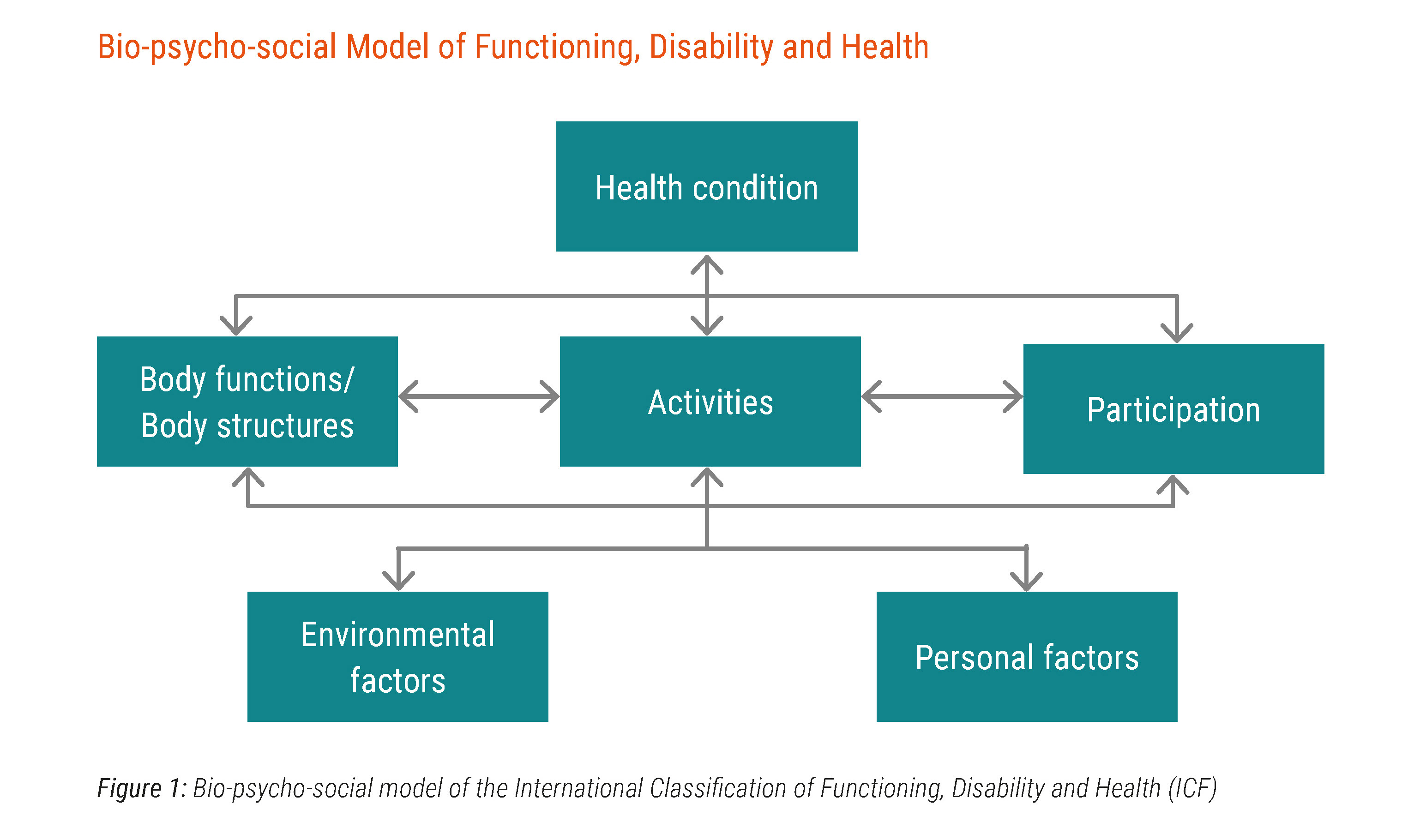The Integrative Bio-psycho-social Model of Functioning, Disability and Health
Figure 1: The Integrative Bio-psycho-social Model of the International Classification of Functioning, Disability and Health (ICF)
A health condition is an umbrella term for disease, disorder, injury or trauma and may also include other circumstances, such as aging, stress, congenital anomaly, or genetic predisposition. It may also include information about pathogeneses and/or etiology.
Body functions are defined as the physiological functions of body systems, including psychological functions. Body structures are the anatomical parts of the body, such as organs, limbs and their components. Problems in body functions (e.g. reduced range of motion, muscle weakness, pain and fatigue) or significant deviation or loss of body structures (e.g. deformity of joints) are referred to as impairments of a body function and structure respectively.
Activity is the execution of a task or action by a person. Participation refers to the involvement of a person in everyday situations and in society. Difficulties at the activity level are referred to as activity limitations (e.g. limitations in dressing) and problems a person may experience in being or getting involved in everyday situations and in society are denoted as participation restrictions (e.g. restrictions in recreation and leisure).
Contextual factors represent the entire background of a person's life and living situation. Among the contextual factors, the environmental factors make up the physical, social and attitudinal environment in which people live. These factors are external to the person and can have a positive or negative influence, i.e., they can serve as a facilitator or a barrier for a person's functioning. Personal factors are the particular background of a person's life and living situation, and comprise features that are not part of the primary health condition. These may include but not limited to gender, age, race, fitness, lifestyle, habits, and social background. They can be considered factors which define the person as a unique individual. Like environmental factors, personal factors can have a positive or negative impact on a person's body functions and structures, and activities and participation.
Literature
- World Health Organization. International Classification of Functioning, Disability and Health, Geneva, World Health Organization; 2001.
